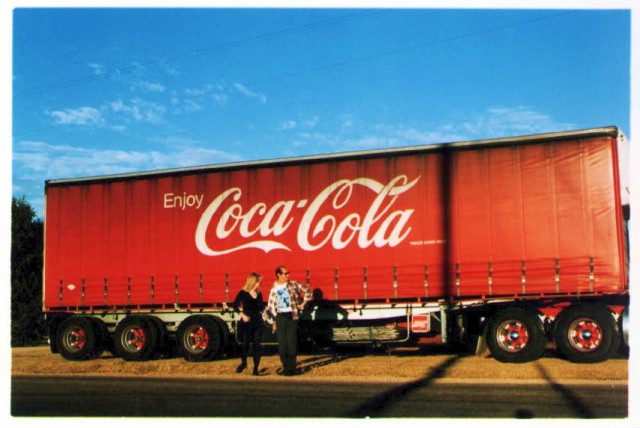
They’re cloyingly sweet, nutritionally empty—and, increasingly, subject to taxation. More than 35 countries and seven cities in the US—starting with Berkeley, California, in 2015—now impose a tax on soda and other sugar-sweetened beverages, and several more places are considering it.
Public health researchers and organizations such as the American Heart Association and the American Academy of Pediatrics see these taxes as low-hanging fruit in the battle against obesity and the health problems, such as diabetes, that often come with it. In the United States, nearly 40 percent of adults are obese, which adds $147 billion to the nation’s annual healthcare spending, according to the Centers for Disease Control and Prevention. The problem is complex, but the widespread consumption of foods packed with added sugars—which add calories but no essential nutrients—plays a major role, and beverages account for nearly half the added sugar in the American diet.
“It’s really hard to shift these behaviors, and taxes are, if not the single most, one of the most impactful and important policies to move the needle on unhealthy eating habits,” says Christina Roberto, a behavioral scientist at the University of Pennsylvania in Philadelphia. Taxes have helped to reduce the public health impact of alcohol and tobacco, and many public health researchers say there’s good reason to think they can mitigate the harms of sugary beverages, too.
At the same time, there are also reasons why soda taxes might not have the impact on public health that advocates hope for. The current taxes may be too low to affect purchasing behavior. People could switch to other unhealthy foods. Or, in some cases, they could simply buy their soda in a neighboring city that doesn’t tax them.
Definitive answers won’t come fast: Chronic conditions like obesity and diabetes take years to develop, and so, too, will any health benefits resulting from a new tax. But an emerging body of research suggests that beverage taxes have already reduced consumption of sugary drinks in some communities—an encouraging and essential step.
Taxing bad habits
The use of taxes to compel people to make healthier choices has a long history with tobacco and alcohol, which are taxed by nearly every country in the world. “There’s decades of work now on tobacco, hundreds of studies from around the world, showing that if you raise prices you induce adults to quit smoking and prevent kids from taking it up,” says Frank Chaloupka, an economist at the University of Illinois at Chicago. Research has linked higher cigarette taxes to reduced mortality from throat and lung cancer and other respiratory diseases, Chaloupka and two coauthors wrote earlier this year in the Annual Review of Public Health. Other studies have linked higher taxes to lower rates of hospitalization for heart failure and lessened severity of childhood asthma.
With alcohol, it’s more like dozens of studies, but the conclusions are similar, Chaloupka says: alcohol taxes have been linked to lower frequency and intensity of drinking and reductions in unhealthy consequences of alcohol abuse, from cirrhosis of the liver to motor vehicle injuries to alcohol-related violence. The higher the tax, as a rule, the greater the impact.
Sugary beverages may seem more innocuous than cigarettes and alcohol, but there’s strong evidence tying them to a host of chronic health problems, says Barry Popkin, an economist and nutrition researcher at the University of North Carolina, Chapel Hill. Sugary drinks cause sharper spikes in blood sugar than most types of food, studies find. Over time, they may be more apt to disrupt the body’s insulin regulation. And sugar dissolved in a drink doesn’t trigger the brain’s satiety mechanisms the same way that sugar in solid food does. As a result, “what we’ve learned in the last 20 years is that what you drink doesn’t affect what you eat,” Popkin says.
Those extra liquid calories (roughly 250 in a 20-ounce bottle of many popular sodas, or 10 percent of the recommended daily total for an adult male), add up. Studies by Popkin and others have linked habitual consumption of sweetened beverages to an elevated risk of weight gain, obesity, type 2 diabetes, cardiovascular disease, and other health problems. A 2010 meta-analysis of previous studies that tracked a total of 310,819 participants, for example, found that people who drink one or more sugary drinks a day have a 26 percent higher risk of developing type 2 diabetes than those who drink no more than one sugary drink per month.
This research has focused on beverages containing calorie-adding sweeteners such as sucrose (table sugar) and high fructose corn syrup—not just sodas but also sports and energy drinks, fruit juices with added sugar, and sweetened coffee and teas. There’s less research, and more expert disagreement, on the health effects of pure fruit juices (which can contain as much sugar per serving as soda, but have vitamins and other nutrients, too) and beverages with artificial sweeteners that don’t add calories.
Sugary beverages certainly aren’t the only culprits. Sugary foods are, too, but they’re more difficult to define and regulate, says Kristine Madsen, a pediatrician and research scientist at the University of California, Berkeley School of Public Health. “If you start getting into foods that could be classified as junk food you get into huge debates,” she says. Take granola bars. Some are loaded with fat and sugar—essentially cookies masquerading as health foods. Others might be packed with nuts and dried fruit and contain little added sugar, making them legitimate sources of protein and dietary fiber. But a typical beverage with added sugar has no nutritional value, Madsen says. “There’s nothing it adds to someone’s diet that benefits them.”
https://arstechnica.com/?p=1636001

